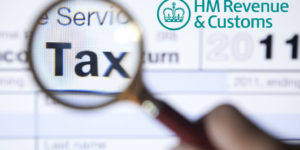If you’re new to the world of company formation, you may be confused about your employment status when trading through your own limited company. Am I self-employed or employed? How does this affect the tax and National Insurance I need to pay? These are common questions, but it’s quite straightforward once you get your head around it.
Employment status of company directors and shareholders
When you become a director and shareholder of a limited company, you are both an ‘employee’ and owner of the business by virtue of these two roles. So, even though you are running your own company and essentially working for yourself, you are not actually classed as self-employed for tax purposes.
This is because, unlike the sole trader business structure (in which the person and the business are legally one and the same), a limited company is incorporated as a distinct and independent entity. In the eyes of the law, it exists in its own right and has an entirely separate personality from its director(s) and shareholder(s).
- Directors, shareholders, PSCs, and company secretaries – an overview
- 13 changes to UK company law – from 4 March 2024
- Most tax-efficient director’s salary and dividends for 2024-25
As a director, you are an officeholder and ‘employee’ for tax purposes, working for and on behalf of the company and its shareholder(s). In exchange for this, the company pays you a salary, which is taxed through Pay As You Earn (PAYE).
As a shareholder, you are a beneficial owner of the company. In exchange for holding shares and investing in the company, you are entitled to a portion of any profit the business makes. You receive this income in the form of dividends.
The tax rates applicable to dividends are more favourable than the Income Tax and National Insurance rates that you will pay on your director’s salary. This is why most owners of small limited companies take a relatively low director’s salary and higher dividends. It is an extremely tax-efficient way to pay yourself through a company.
If you claim Universal Credit or other benefits
The only exception to your status as a company director and shareholder is when claiming Universal Credit and certain other benefits. In such instances, the Department for Work and Pensions may treat you as self-employed, with your company income treated as income from self-employment.
What tax do I pay as a director?
Like most employees, company directors are also paid through payroll, with tax and National Insurance contributions (NIC) deducted through HMRC’s PAYE system.
For tax purposes, your salary is treated as earnings from employment, not earnings from self-employment.
Depending on how much you decide to pay yourself as a salary, you may be liable to Income Tax and Class 1 NIC deductions. Your company may also have to pay Class 1 employer’s National Insurance on your salary.
The company will make these deductions to your salary ‘at source’ (through payroll) each payday and then send whatever personal tax and NIC you owe to HMRC on a monthly basis.
What tax do I pay as a shareholder?
Any money that you receive through dividends is classed as investment income, so it is paid and taxed differently from your director’s salary.
Dividends are paid from business profits. Your company will have already paid Corporation Tax on these profits. Consequently, you do not have to pay Income Tax or National Insurance on dividends.
- Dividend tax – a complete guide
- How to register for Self Assessment
- 2024-25 tax guide for UK business owners
Instead, you are entitled to a £500 annual dividend allowance, which is tax-free. Above that £500, you’ll enjoy lower rates of dividend tax at 8.75%, 33.75%, and 39.35% (2024/25 tax year). The rate(s) you’ll pay will depend on the band of Income Tax you fall into.
Dividends are not taxed at source. It is your responsibility to report and pay tax on dividend income through Self Assessment. You will have to complete a personal tax return each year and pay any additional tax you owe to HMRC.
In summary
Whilst not as clear cut as being a self-employed sole trader, your employment status as a director and shareholder of your own limited company isn’t as complex as it first seems.
The company pays you a director’s salary as an ‘employee’. If the business makes a profit, the company can also pay some or all of those profits to you in the form of shareholder dividends.
The only time you may be treated as self-employed is when claiming Universal Credit or certain other benefits.
The easiest way to get to grips with this is to avoid thinking that you are the company. It’s your business, and you may be the only person working for that business, but you are not self-employed. You are working through the company – and that company is a separate entity with its own legal personality.





Join The Discussion
Comments (8)
Hi and thanks for your useful article. One question. Director and 100% shareholder of limited company taking dividend only (no salary due to using personal allowance with property and investment income). How can I pay NI contributions in order to build state pension? Many thanks
Hi Steve,
Thanks for your message.
We can’t provide specific advice: however, our understanding is you will need to pay Class 1 National Insurance contributions through your salary to build credit for things such as the State Pension.
Kidn regards,
The 1st Formations Team
Hi, I’m the Director of my Limited company. I pay myself via PAYE and dividends. Should I file a self-assessment each year as well as the CT600 for the company?
Thank you for your kind enquiry, Simon.
If your PAYE salary is over £100,000, if your dividend income will take you over £100,000 in total income, or if you pay yourself more than £1,000 in dividends, you will need to file your Self Assessment each year.
We trust this information is of use to you.
Kind regards,
The 1st Formations Team
I am now the director of a ltd company. Do I now de register for self assessment as I am no longer self employed but employed by the business. ? Or if not what information do I submit to self assessment
Thank you for your kind enquiry, Ruby.
You would need to de-register for Self Assessment if you were going to be paid by PAYE only, and your PAYE income would is under £100,000 per annum.
To de-register for Self Assessment, you should call HMRC on 0300 200 3310.
We trust this information is of use to you.
Kind regards,
The 1st Formations Team
Hi. I am planning to open ltd company but I am non resident so will not be able to get NIN number. Would I be able to pay myself out through the PAYE system if I pay only within NIN allowance?
Thank you for your kind enquiry, Voy.
Unfortunately you will be unable to pay yourself via PAYE if do not possess a National Insurance number, regardless of whether you would be paid under the threshold for National Insurance contributions. We would recommend obtainining a National Insurance number for this purpose.
We trust this information is of use to you.
Kind regards,
The 1st Formations Team